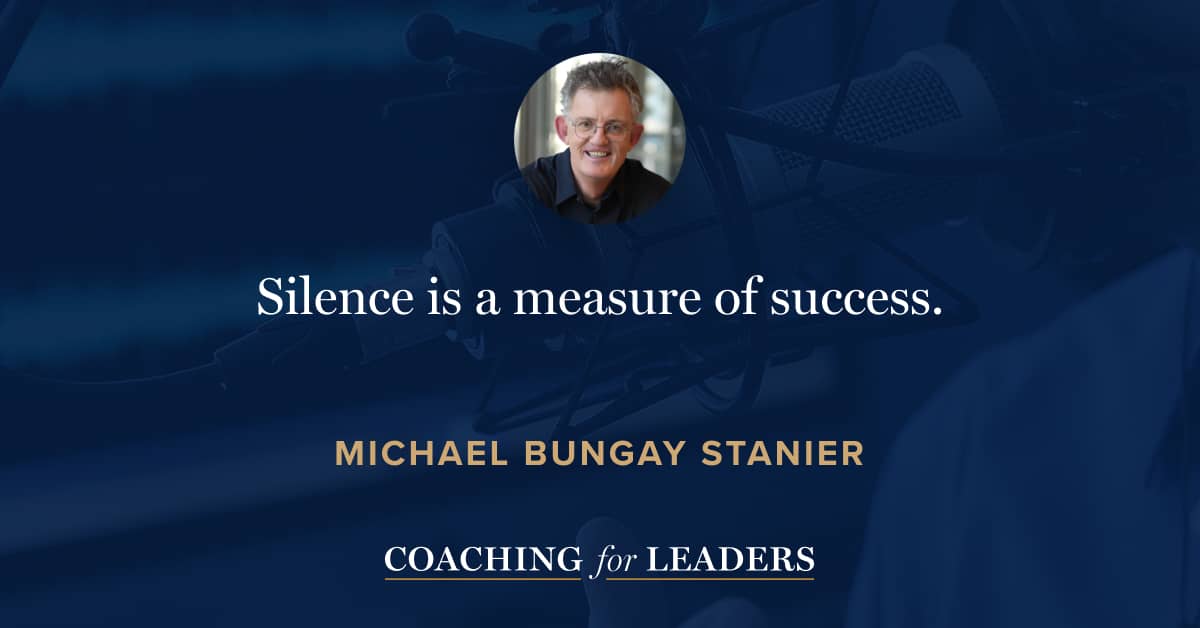Michael Bungay Stanier: The Coaching Habit
Michael Bungay Stanier is the author of eight books, including The Coaching Habit*, which has sold more than a million copies and is the best-selling book on coaching this century. He is the founder Box of Crayons, a learning and development company that’s trained thousands of people around the world to be more coach-like. His TEDx Talk on Taming Your Advice Monster has been viewed more than a million times.
One of the most common desires leaders espouse is wanting to get better at helping others grow. One great way to do that is to become more coach-like. In this conversation, Michael and I explore how we can do better at building this skill.
Key Points
- Care deeply for others while also being disconnected from their outcomes. Give people responsibility for their own freedom.
- Consider asking, “How much risk are you willing to take?” Allow the other party to define the boundaries.
- Bring a difficult observation as a third point. Separate the message from the person and let them decide what’s true.
- Avoid asking “why” questions of others to avoid putting people on the defensive and trying to solve their problems.
- A helpful checkpoint: is this question something that’s helping me or helping the other party?
- Silence is a measure of success. When you ask a question that lands, people need time to answer.
- Your body leads your brain. Notice your physical presence and how it manifests when you’re listening well.
Resources Mentioned
- The Coaching Habit* by Michael Bungay Stanier
- Register your book receipt for bonus items from Michael
Interview Notes
Download my interview notes in PDF format (free membership required).
Related Episodes
- These Coaching Questions Get Results, with Michael Bungay Stanier (episode 237)
- Leadership in the Midst of Chaos, with Jim Mattis (episode 440)
- How to Lead Better Through Complexity, with Jennifer Garvey Berger (episode 613)
- How to Help Others Be Seen and Heard, with Scott Shigeoka (episode 654)
Discover More
Activate your free membership for full access to the entire library of interviews since 2011, searchable by topic. To accelerate your learning, uncover more inside Coaching for Leaders Plus.





